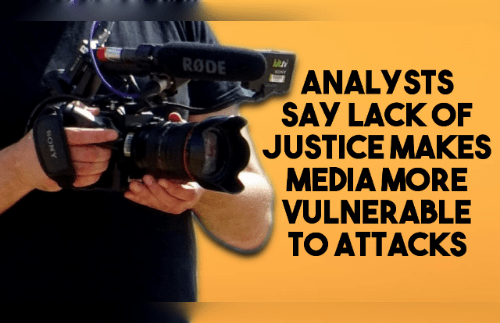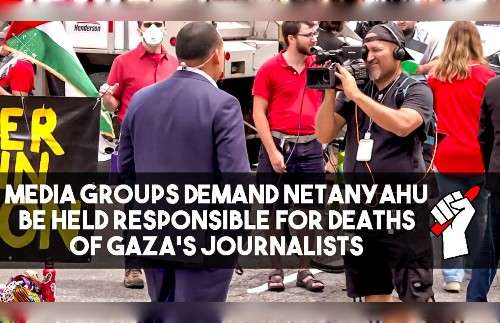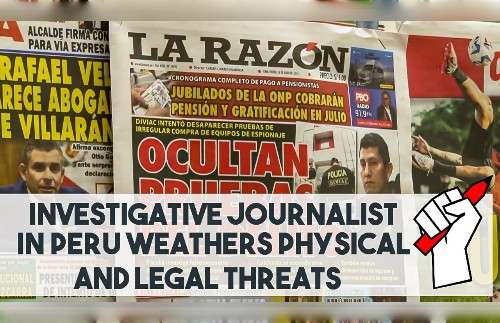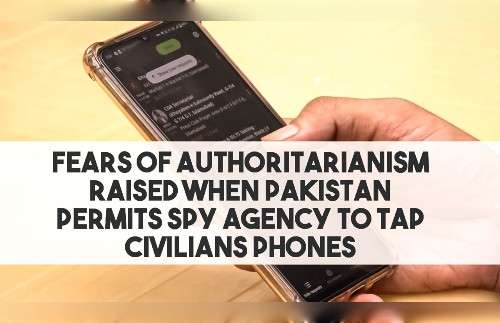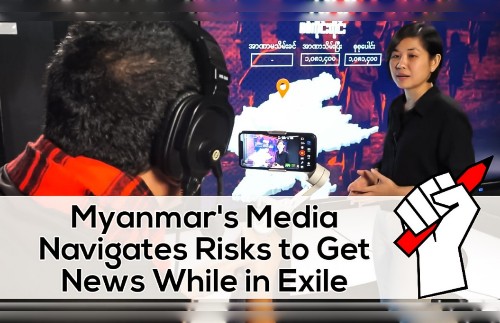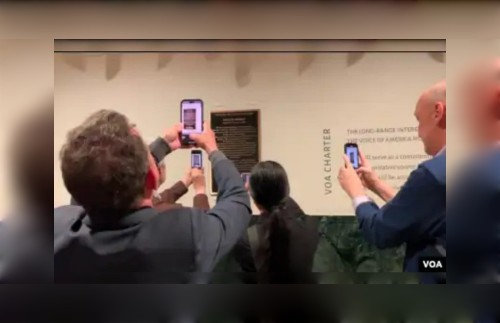
According to the court, Chen “used the internet to publish false or negative information, maliciously exaggerate certain mass incidents, attack and vilify the [ruling Chinese Communist] Party and the government, judicial organs and their staff, instigate troubles, and extort public and private property.”
The overseas-based Chinese Human Rights Defenders (CHRD) network said Chen had been deprived of a fair trial. It said Chinese state media had launched a smear campaign accusing Chen of various crimes and quoting police as saying that his online speech “sabotaged the reputation of the Party and the government and damaged the government’s credibility” as early as August, while his formal arrest didn’t come until November.
Authorities in the central Chinese province of Hunan handed down a 15-year jail term to a journalist who made critical comments on social media, just days ahead of World Press Freedom Day on May 3.
Guiyang County People’s Court sentenced journalist Chen Jieren to 15 years’ imprisonment on April 30 after finding him guilty of “picking quarrels and stirring up trouble,” “extortion and blackmail,” “illegal business activity,” and “bribery.”
The outspoken Chen had been fired from various state newspapers including Southern Weekend, China Youth Daily, Beijing Daily, and People’s Daily.
He then took to social media platforms WeChat and Weibo, where he published online commentaries and investigative reports.
State media also published Chen’s “confession” while he was incommunicado in a secret detention facility, under “residential surveillance at a designated location” (RSDL), CHRD said.
“Chen’s heavy punishment sends a chilling signal to online independent commentators and citizen journalists,” the group said.
Threats of arrests, beatings
International press freedom groups also warned of growing curbs on media workers by China ahead of World Press Freedom Day.
International Press Institute executive director Barbara Trionfi said journalists around the world have found themselves confronted not only with the risk of infection, “but also with the threat of arrest, beatings or physical assault by security forces or criminal charges due to reporting on the virus.”
“It is crucial that extraordinary restrictions on media imposed during the crisis do not become normalized and outlive the immediate health crisis, especially when it comes to lack of transparency by governments, lack of access by media to decision-makers and any form of surveillance hindering the press,” Trionfi said.
The IPI said the situation is worsening in China.
“In already heavily censored China, the Communist Party further ramped up policing of the internet, suppressed “unofficial” media reporting and persecuted citizen journalists reporting on social media about the reality of the situation,” the group warned in a report for World Press Freedom Day.
Paris-based Reporters Without Borders (RSF) ranked China 177th out of 180 countries in an annual global press freedom index earlier this month.
Global disinformation campaign
RSF has also warned that Beijing has been running a “global disinformation campaign” ever since the start of the pandemic that has killed 150,000 people and infected more than two million others worldwide.
The campaign is designed to drown out critics who blame Beijing for the spread of the virus on the grounds that its censorship of early warnings delayed adoption of the necessary public health measures, RSF said in a statement on its website.
It cited claims by Chinese officials that the coronavirus that causes COVID-19 was brought to the central Chinese city of Wuhan by the U.S. army, or that it might have been “circulating in parts of Italy before doctors were aware of the outbreak in China.”
Publishing its annual Press Freedom Index, RSF said the Asia-Pacific region saw the greatest rise in press freedom violations in the past year, as China tries to export its system of information hyper-control beyond its own borders.
More than 100 journalists and bloggers are currently detained in China, in conditions that pose a threat to their lives, RSF said.
Hong Kong, which was promised press freedom under the terms of the 1997 handover to Chinese rule but which is seeing the ruling Chinese Communist Party take increasingly direct control of the city, also fell seven places because of its treatment of journalists during pro-democracy demonstrations, the report said.
The city’s police force have threatened to pursue government broadcaster RTHK for allowing a commentator to accuse police of brutality and abuse of power on air.
Pro-democracy publisher arrested
The IPI meanwhile condemned the recent arrest in Hong Kong of media tycoon Jimmy Lai, who founded the pro-democracy Apple Daily newspaper.
Lai was arrested along with 14 other pro-democracy figures on April 18 on charges of joining an anti-government protest in 2019.
“Alarm bells should be ringing loudly over the arrest of Jimmy Lai,” IPI deputy director Scott Griffen said in a recent statement.
“His detention is a sign that while the world is distracted by the coronavirus pandemic, China is moving to clamp down on independent media in Hong Kong in the wake of the territory’s pro-democracy movement.”
“The arrest of Jimmy Lai is a threat to free press in Hong Kong from an undemocratic government,” Mark Simon, spokesman for Lai’s Next Media, said. “The real goal is to shut down the Next Media, in which Jimmy is the largest shareholder.”
The IPI said that journalists were increasingly targeted by police as the anti-extradition and pro-democracy protests escalated in 2019.
“As the violence against journalists continued, several of them suffered injuries, including one who was splashed with corrosive liquid and another who was permanently blinded in one eye after being shot in the face with a police projectile,” the group said.
“The incidents prompted some media outlets to partially recall their reporting crews from the front-line.”
Reported by Wong Lok-to for RFA’s Cantonese and by the Mandarin Service. Translated and edited by Luisetta Mudie.
Copyright © 1998-2020, RFA. Used with the permission of Radio Free Asia, 2025 M St. NW, Suite 300, Washington DC 20036. https://www.rfa.org
Escaping from Scam Center on Cambodia’s Bokor Mountain
UN Security Council Meets to Discuss Children and Armed Conflict
10 Shocking Revelations from Bangladesh Commission’s Report About Ex-PM Hasina-Linked Forced Disappearances
Migration Dynamics Shifting Due to New US Administration New Regional Laws
UN Security Council Meets to Discuss the Maintenance of International Peace and Security and Artificial Intelligence
Winter Brings New Challenges for Residents living in Ukraine’s Donetsk Region
Permanent Representative of Israel Briefs Press at UN Headquarters
Hospitals Overwhelmed in Vanuatu as Death and Damage Toll Mounts from Quake
Subscribe Our You Tube Channel
Fighting Fake News
Fighting Lies













